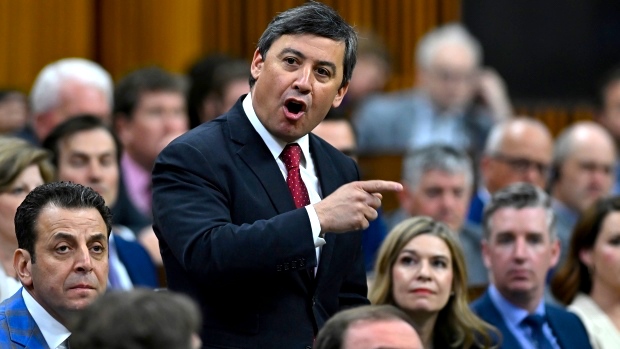OTTAWA
In our increasingly interconnected world, the defence of democratic values extends far beyond national borders. A crucial aspect of safeguarding these values lies in the strength and independence of a free and fair press, which serves as a beacon of truth and accountability. It is the watchdog that exposes corruption, holds those in power accountable, and ensures that citizens have access to accurate and unbiased information, especially during crucial moments like elections. However, as the world grapples with the rise of disinformation and external influence campaigns, the ability and independence of the press are directly undermined.
Transnational repression, as seen through the lens of the Chinese Communist Party’s actions, is a concerted effort to stifle criticism
When Benedict Rogers and I met with Indian Parliamentarian and Interparliamentary Alliance on China member Sujeet Kumar, we discussed these challenges in the context of India and specifically around the Tibetan community in Dharamshala where the Tibetan government in exile resides. We agreed that one of the greatest challenges facing democracy comes from the actions of authoritarian regimes like the Chinese Communist Party (CCP), Russia, and Iran. These regimes have expanded their efforts and cooperation to influence and manipulate diaspora communities and media abroad, to spread disinformation and influence opinion, of both the public and decision-makers. Canada, like many other democracies, is confronting the challenges posed by this relentless campaign of transnational repression by the CCP.
At the forefront of this battle is Michael Chong, a Canadian Member of Parliament and the Shadow Minister of Global Affairs. He has been a vocal advocate for human rights and a staunch critic of the CCP’s actions, including their treatment of Uyghurs in East Turkistan. Chong and his family have also been personally targeted by the CCP. On Tuesday, at 10 am, he will testify in Washington before the United States Congressional-Executive Commission on China (CECC) to shed light on the grave threats facing democratic societies, not only in Canada but around the world.
One of the issues Chong will address is the use of social media platforms as tools for manipulation and disinformation. In the 2021 Canadian federal election, Chong, MP Kenny Chui, Alice Wong and former leader Conservative leader Erin O’Toole all became targets of WeChat disinformation campaigns that led to a minimum of seven and as many as 11 seats being manipulated by Beijing’s influence operations, according to sources in the intelligence and journalistic communities. Committee members will likely be interested in Chong’s experiences because the same tactics are being deployed in the United States with the Chinese diaspora community as next year’s presidential election looms close.
The control of the media by the CCP plays a pivotal role in this operation, becoming a battleground where narratives are shaped, and information controlled. This battle is exacerbated by a troubling dichotomy; while Canadian officials assure diaspora communities that they are safe and encouraged to report threats, the CCP’s propaganda machine works diligently to undermine that assurance.
The CCP also uses legal, economic, and psychological tactics, including lawfare to censor and punish journalists, a carrot-and-stick approach involving ad revenue and threats, and claims of racism against journalists and publishers. As a corollary, The Sunday Guardian has been the target of the CCP’s Lawfare on numerous occasions.
As Michael Chong testifies before the CECC, it is paramount to recognise the urgency of addressing these challenges. Canada and other democratic nations must strengthen their defences against transnational repression, election interference, and disinformation campaigns. Protecting the media’s role as a watchdog and information source is crucial. Developing a more robust legal, policy, and intelligence framework and collaborating with allies like the United States and Mexico is essential to preserving democratic values and institutions in North America. This effort then needs to be extended to a global initiative that embraces like-minded democracies in Asia, especially India.
Chong promises to address all these issues in his testimony, and not only for his American audience. The CECC will live stream the proceedings, ensuring that lawmakers on both sides of the border can watch them. With Ottawa finally moving ahead with an inquiry on foreign interference that was announced in Ottawa this past Thursday, Chong’s appearance should be required viewing for inquiry chair Justice Marie-Josee Hogue and all federal politicians.
In a world where the battle for democracy extends beyond borders, it is incumbent upon all democracies to stand united and resilient, guarding against the erosion of their values. The protection of free and independent media is central to this endeavour. The ethnic diaspora communities hope that someone is finally listening to them and has their backs. With his courage and determination, Michael Chong may well be that champion.
Dean Baxendale is a publisher, writer and human rights advocate. He is the CEO of Optimum Publishing and the China Democracy Fund and a contributor to the Sunday Guardian.

